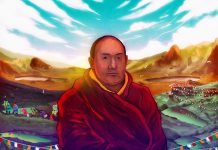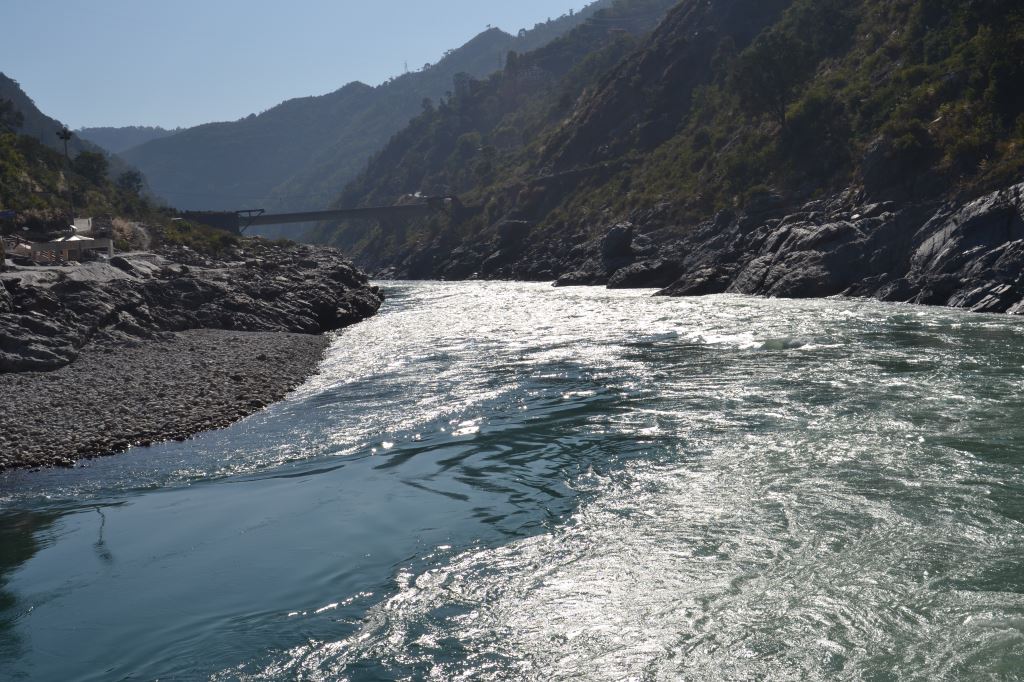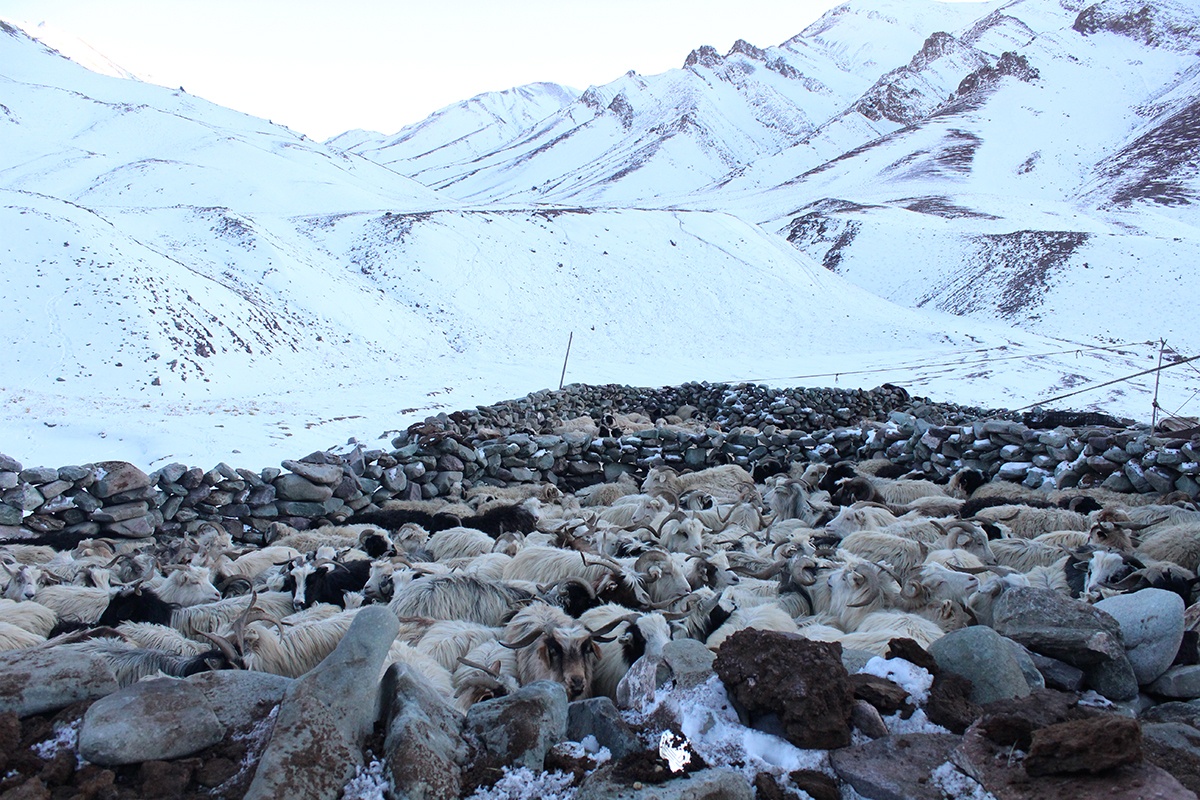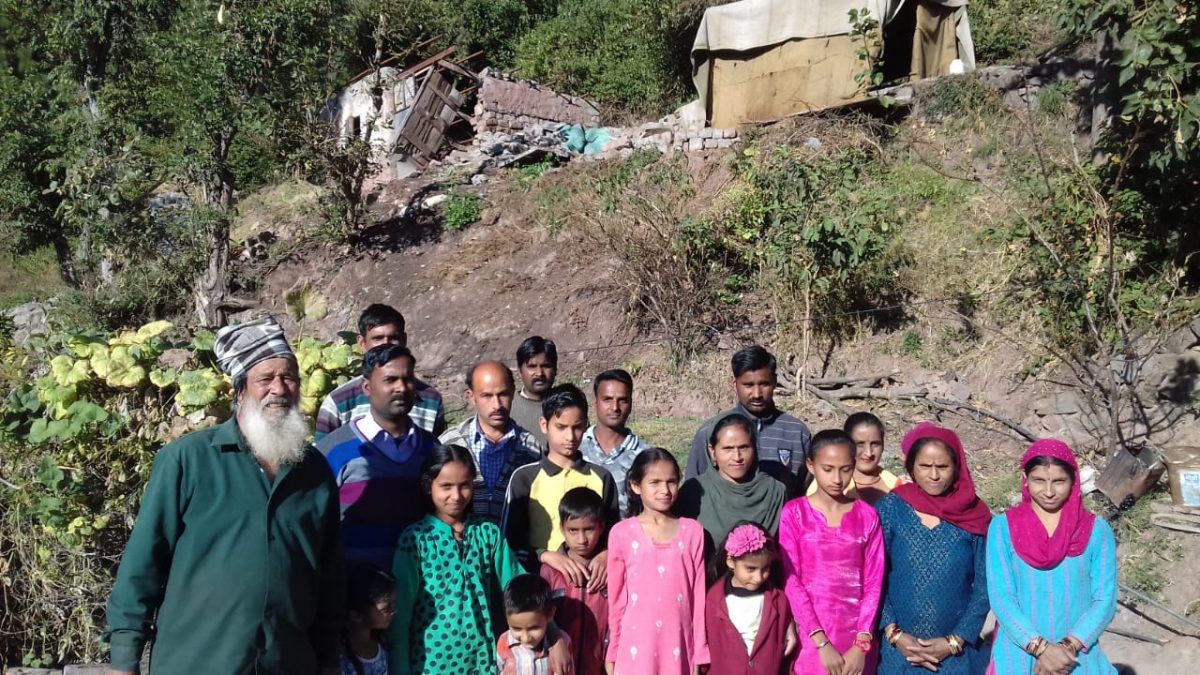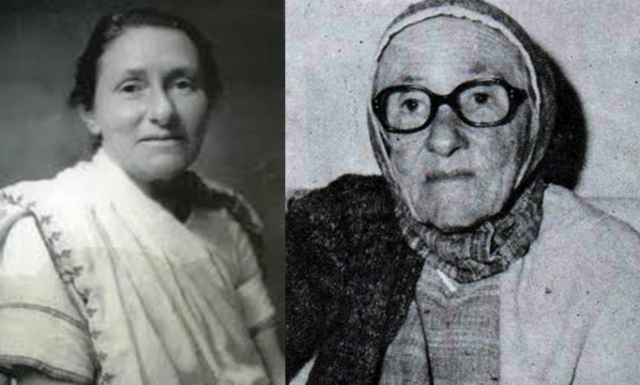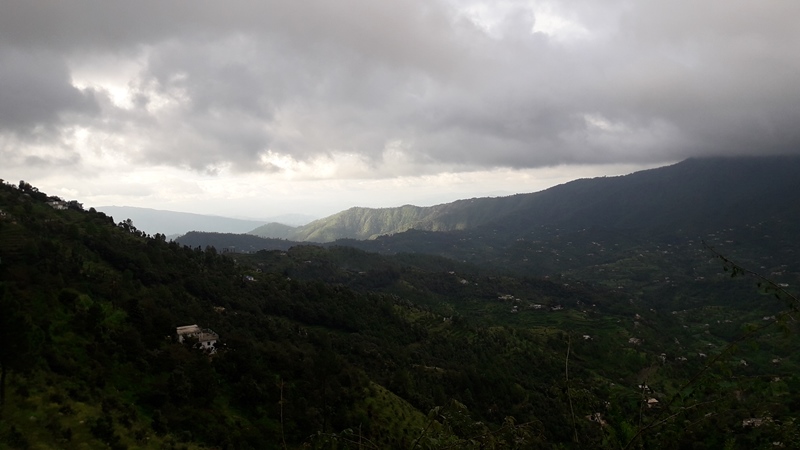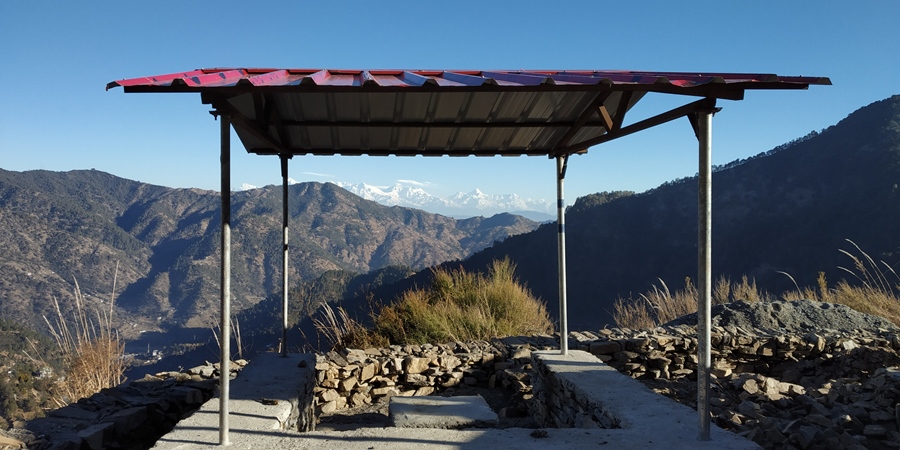Yes, it was a prolonged period of inertia. The pandemic compelled me to think of, or to remain preoccupied with the strategy of survival: somehow learning to exist with masks, sanitizer and ‘distancing’; consuming the ever-growing statistics of infections and death to evolve new ‘techniques’ of ‘safety’; and severely restricting my horizon. Amid fear, psychic bewilderment and all sorts of reports relating to the nature of the virus, or the efficacy of the vaccines, I began to lose the art and aesthetics of living. I survived; but I didn’t live. Possibly, it was becoming unbearable. There was restlessness; there was anguish; and then, there was a desperate urge to break this vicious cycle of fear and ‘safety’. Well, the existence began to whisper in my ears: Overcome your fear, live deeply and meaningfully, and give a jump into the abundance of the infinite. This time I heard this voice, broke my psychic inertia, and undertook a rhythmic journey. And I found myself on the lap of the mountains. I looked at every fold of the garland of mountains; I saw the snow clad peaks with wonder; I felt the music emanating from the whisper of pine and deodar trees; and the amazingly clear sky with cosmic energy began to enchant me. I forgot all the strategies of survival. Instead, I began to live…. And like Tagore, I too sang:
I have seen, have heard, have lived;
In the depth of the known have felt
The truth that exceeds all knowledge
Which fills my heart with wonder and I sing.
The Lightness of Being
As I look at the peaks, something happens to me. Why is it that these peaks remain unaffected, and exist as a witness—calm, firm, and without any sign of pleasure and pain? As an ordinary mortal—particularly, at this turbulent time, I have passed through the psychology of fear and anxiety; I have seen friends, neighbors and relatives getting infected; and I have seen people dying and economy crumbling. But then, despite this turmoil in this phenomenal world, the peaks remain silent, detached and equally radiant. Is it that this glimpse of the infinite amid the vastness of the mountains is conveying a message to me: the way the Upanishadic sage or Gautam Buddha sought to awaken us? Everything that we are so closely attached to—this body, this status, this property, this power, this relationship—is temporal. Like waves in the sea, they appear and then disappear. What remains is the eternal light —beyond this finite embodied existence, beyond history—its wars and treaties, and beyond the glitz of capitalism—the rise and fall of the market, or the way consumerism seduces us to believe that for eternity we can keep driving our fancy cars, consuming fast food, and entertaining ourselves with everything that is ‘latest’ and ‘fashionable’. I look at the peaks. Initially, I feel intense pain—a sense of loss and betrayal. I feel that the peaks are indifferent, and our difficulties and miseries—nothing matters. Yes, the peaks crush my ego. And at that very moment, I see the end of narcissism. A ray of light touches my forehead. I begin to feel that there is something higher, nobler and purer than my egotistic obsession, my pleasure and pain, or my safety and security; and possibly, the peaks are asking me to realize the illumination of this truth. And then, I invoke Tagore once again; my song seeks to touch the peaks:
Help me bow my head under the dust of your feet.
Help me submerge all my vanity under modest tears.
May I not project myself in my own activity.
It is your intentions that I carry out in my life.
It is not that I forget the pandemic and associated pain and turmoil. Instead, I evolve a way of seeing—possibly, the pandemic is also asking us to see the futility of our inflated egos, or the belief that this world is essentially man-centric, and we are the masters of the world. This flash of truth causes some sort of lightness; and with the lightness of being, I become a tiny bird flying in the infinite sky, and move towards the peaks…
Beyond Life and Death
Quite often, I ask myself a pertinent question: Is it a cage that we have created for ourselves? Think of our mega cities. Tiny apartments in skyscrapers, authoritarianism of the clock time, neurotic obsession with ‘productivity’ and ‘efficiency’, and limitless indulgence with speed—be it the speed of ‘viral’ news, the speed of our cars in expressways, or the speed of the flowing money: is it like existing like robotic performers? Is this craving for ‘success’ the ultimate absurdity of everything? Imagine what this ‘success’ has deprived us of. Seldom do we see the radiant moon through the window of our apartments (when everything is measured, and one keeps moving within, say, a 1200 sq. ft. apartment in the eleventh floor of a gigantic tower); seldom do we find a friend with whom we can share our laughter and tears (when everybody is a stranger, a competitor, an outsider); and seldom do we find the company of a tree that whispers when we are drunk, and vomit the toxins we consume throughout the day. Yes, ‘nature’, for us, is an artificial park or a lake or a zoo; and even walking seems to have lost its beauty; it is an ‘exercise’ (directed by the professional doctor) to reduce hyper tension and blood sugar.
As I find myself on the lap of the mountains, I find my new friends. The white clouds are embracing the peaks—the way the merger of the lover and the beloved create the finest music; a tiny blue flower is dancing without any ‘purpose’; a yellow butterfly is coming closer to the flower; an old man is walking slowly through the curved path without any hurry. There is silence with immense depth and tranquility. No skyscraper. No shopping mall. No rush. And the overwhelming presence of nature—the sense of the infinite as you see the fold of the mountains, the expanded sky, the soothing light coming from the valleys in an otherwise dark evening—makes you feel that you are not a ‘measurable’ product; instead, you are essentially connected with nature. You are the sun; you are the pine tree; you are the butterfly; you are the peak; you are the sunset; you are the distant star in the sky. And to live deeply, intensely and meaningfully is to restore this union: something that we are fast losing in the age of techno-science and triumphant capitalism with its greed and violence.
And when we manifest ourselves in all these creations— in this grand play, it is obvious that there is something beyond life and death, or pleasure and pain. Yes, there is something beyond the pandemic…
Avijit Pathak is Professor of Sociology at JNU


